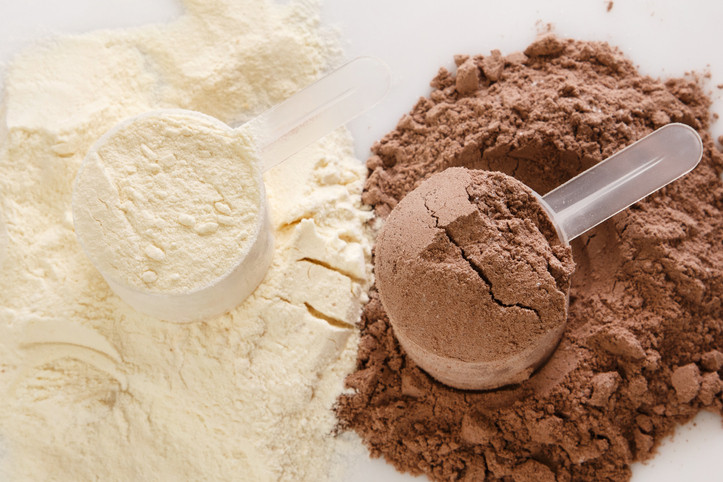
New thinking about plaque in arteries that feed the brain

Want to prevent shifting teeth? Maybe you need retainers

What you need to know about the new dietary guidelines

Food that’s healthier for people and planet can be cheaper, too

New evidence that polyphenol-rich foods help the heart

8 simple ways to reduce ultra-processed foods in your diet

How to curb your stress eating

How to spot Parkinson’s disease symptoms

Heart failure symptoms in women: How they’re different

GERD diet: Foods to avoid to reduce acid reflux
Diet & Weight Loss Archive
Articles
Weight loss can help head off lasting damage caused by fatty liver
Non-alcoholic fatty liver disease is the most common cause of liver disease in the United States, caused by the accumulation of fat in the liver. The key to preventing complications is to detect and treat it early, but getting a diagnosis can be tricky.
Weight-loss surgery may lower risk of heart disease in people with diabetes
Most people with type 2 diabetes also have obesity. Weight-loss surgery has a positive impact on risk factors for heart disease, and a recent study found that this surgery significantly reduced the risk of death in people with obesity and diabetes.
Weight-loss drug Belviq recalled
Findings from a follow-up on people taking the weight-loss medication Belviq showed a slight increase in the occurrence of cancers, resulting in the drug being withdrawn from the market at the request of the FDA.
Eating during COVID-19: Improve your mood and lower stress
Staying at home during the COVID-19 pandemic is challenging for everyone, and the increased anxiety (and boredom) can cause people to abandon their healthy eating intentions and snack on whatever is around. But with a little thought and planning, you can continue to make good food choices and maybe even boost your mood and immunity.
Go figure: A healthy eating approach helps people be healthy
A study comparing the outcomes of three eating plans (Mediterranean diet, paleo diet, or intermittent fasting) that were followed for a year found that all participants lost weight, and also had added benefits such as lower blood pressure.
The scoop on protein powder
The amount of protein you need depends on your age, health, and the intensity of your fitness routine. For most people it’s relatively easy to get the recommended amount from food, but there are situations when someone might want to consider a protein powder supplement.
Controlling your weight is key to lowering stroke risk
There is a lot you can do to lower your chances of having a stroke. Even if you've already had a stroke or TIA ("mini-stroke"), you can take steps to prevent another.
Controlling your weight is an important way to lower stroke risk. Excess pounds strain the entire circulatory system and can lead to other health conditions, including high blood pressure, diabetes, high cholesterol, and obstructive sleep apnea. But losing as little as 5% to 10% of your starting weight can lower your blood pressure and other stroke risk factors.
Eating nuts: A strategy for weight control?
News briefs
Nuts are rich in healthy fat and calories, so you may not think of them as tools for weight control. But nuts may actually help in the battle of the bulge, suggests a Harvard study published online Sept. 23, 2019, by BMJ Nutrition, Prevention, and Health. Researchers analyzed questionnaire responses on dietary habits, physical activity, and weight changes from about 145,000 middle-aged and older men and women. People who went from never eating nuts to eating a daily average of at least half a serving (about half a handful) were 16% less likely to become obese over a four-year period compared with people who didn't eat nuts at all. Substituting a half serving of nuts per day for red meat, processed meat, French fries, desserts, or potato chips was also associated with less weight gain. "Nuts have protein and fiber which help us feel full longer and offset cravings for junk food. Although nuts are high in calories, up to 20% of calories from nut consumption will be excreted from our body," says Dr. Xiaoran Liu, one of the study authors and a research associate with the Harvard T.H. Chan School of Public Health.
Image: margouillatphotos/Getty Images
Fluid retention: What it can mean for your heart
Fluid buildup indicates worsening heart failure. Learn how to spot it and treat it early.
The buildup of excess fluid in your body can take a variety of forms from belly bloating and swollen ankles to nausea, persistent coughing and fatigue. You may be tempted initially to dismiss this hodgepodge of problems as having little to do with your heart. However, they all signal water retention, which can mean trouble for people with a history of heart failure.
Why weight matters when it comes to joint pain
If you're having the occasional twinge of joint pain when you go for a walk or climb stairs, or you're worried about arthritis because a parent had it, one step toward prevention is to check your weight.
There are two ways that being overweight raises your risk for developing osteoarthritis (the most common joint disorder, which is due to wear and tear on a joint). First, excess weight puts additional stress on weight-bearing joints (the knee, for example). Second, inflammatory factors associated with weight gain might contribute to trouble in other joints (for example, the hands).

New thinking about plaque in arteries that feed the brain

Want to prevent shifting teeth? Maybe you need retainers

What you need to know about the new dietary guidelines

Food that’s healthier for people and planet can be cheaper, too

New evidence that polyphenol-rich foods help the heart

8 simple ways to reduce ultra-processed foods in your diet

How to curb your stress eating

How to spot Parkinson’s disease symptoms

Heart failure symptoms in women: How they’re different

GERD diet: Foods to avoid to reduce acid reflux
Free Healthbeat Signup
Get the latest in health news delivered to your inbox!
Sign Up











